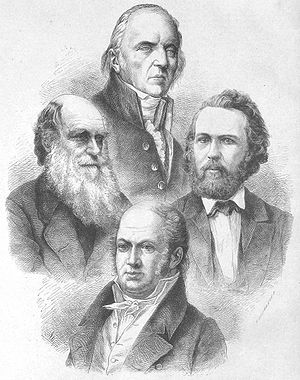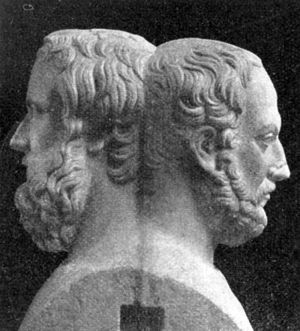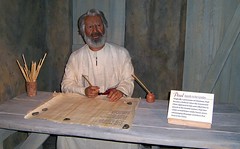


Cameron, a critic of Dave Fitzgerald’s Nailed, has responded to my remarks (Are Mythicist Sceptics Hypocritical for Attacking Creationists) about his accusation that those who reject the historicity of Jesus are hypocritical if they also criticize Creationists for rejecting an academic consensus. As seems to be par for the course with these sorts of attacks, derisive labels and character attacks are deployed against anyone who argues that Jesus was not a historical figure. Hence the generic title of his response: Hypocritical Christ-mythers.
Cameron begins his response thus:
In my review of David Fitzgerald’s book Nailed, I criticized Christ-mythers for ignoring the consensus of biblical scholars on the historical Jesus, while simultaneously attacking creationists for rejecting the consensus of scientists on evolution. Fitzgerald didn’t like the comparison, and neither did Neil Godfrey over at Vridar. But he’s wrong for the same reasons Fitzgerald is. His comments are in quotes, followed by my responses.
“Of course there is one professor who asserts that to the extent that biblical studies does have a degree of certainty (even though only a fraction of anything in the sciences), to that extent mythicists should respectfully submit to this consensus just as creationists should be rational and accept the authority of scientists. That one discipline is the foundation of all our modern progress and the other is a Mickey Mouse course doesn’t matter. What matters is that the most honourable professors in each have certainties. One just happens to have greater certainties than the other, that’s all.”
Of course there’s a degree of uncertainty involved when investigating historical figures, but to call biblical history a “Mickey Mouse course” is to reach a new level of special pleading. People like Godfrey make the entire field sound like a collection crazy, right-wing evangelicals bent on defending their worldview. The truth is that these scholars, whatever their ideological commitments may be, are interested in the truth. That most of them (even those skeptical of Christianity) have rejected the Christ-myth speaks volumes about its lack of validity. Furthermore, if mythicists are aware of the limitations of history, though they exaggerate them, don’t you think historians areas well? Yeah…they are. But somehow the experts rarely throw up their hands and exclaim, “well we weren’t there; Jesus probably wasn’t real!”
Whatever their ideological commitments?
Cameron portrays theologians who study “the historical Jesus” as reasonable enough to set aside their ideological commitments in order to objectively seek out only “the truth” of the matter. This is a naive Pollyannish portrayal of a scholarly field dominated by faith-committed theologians. Let’s break down Cameron’s comment and examine each piece.
Biblical studies is probably the most ideologically oriented of all academic disciplines. Hector Avalos has shown that clearly enough in The End of Biblical Studies. R. Joseph Hoffmann remarked on this blog that the reason the Christ myth theory is not given more attention among scholars has more to do with conditions of academic appointments than common sense. Stevan Davies recently pointed out that a list of the Westar Institute Fellows shows nearly all are or have been affiliated with seminaries and theological institutions. Most of the scholarly books one picks up on the historical Jesus contain prefaces or concluding chapters in which one reads reflections that sound more like homilies or spiritual confessions. James Crossley has publicly denounced the way biblical scholars so regularly open their academic get-togethers (seminars, workshops) with prayers. Blogs of theologian scholars are dominated by spiritual reflections and sayings. Atheists and atheism are generally derided. Ideology is important. The Christian faith dominates the entire field of biblical studies. To suggest that these scholars are all committed to setting aside their personal faith and seeking truth regardless of where it may lead sounds about as plausible as expecting Nazi-era scientists to set aside their political ideology in order to study the biological grounds for racial differences.
That most of such scholars have rejected a model that undermines the entire ideological and faith foundations of this scholarly field tells us absolutely nothing about its lack of validity. Continue reading “Hypocritical Christ-mythers: Cameron’s response to Neil Godfrey at Vridar — & my response back”



